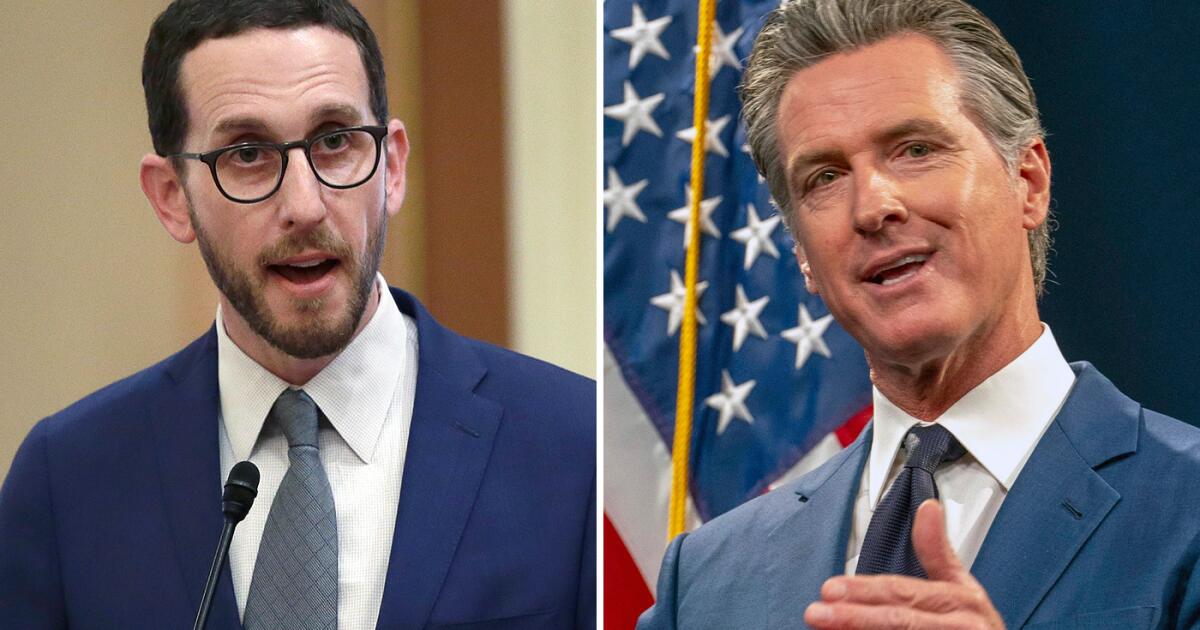Haitians living in the United States are under attack by Republican presidential nominee Donald Trump, his running mate JD Vance, and their xenophobic followers. People living in Haiti face hunger and unfettered gang violence. But what the Dominican Republic is doing to Haitians (and anyone who might “look” Haitian) is both racist and criminal. This comes as no surprise to anyone familiar with the tortured history of relations between the two nations, dating back to the genocidal Parsley Massacre, the denial of citizenship for Haitians born in the Dominican Republic, the building of a wall to stop Haitians from crossing the border, and other atrocious activities.
Now, the Dominican Republic is outright deporting thousands of Haitians at a time when the political and economic situation in Haiti is dire.
Caribbean Matters is a weekly series from Daily Kos. Hope you’ll join us here every Saturday. If you are unfamiliar with the region, check out Caribbean Matters: Getting to know the countries of the Caribbean.
The Washington Post’s Ana Vanessa Herrero wrote “Dominican Republic expels over 10,000 Haitians, and plans to do so every week”:
In a statement last week, Dominican Republic officials explained that the “slow” results of that U.N.-backed security mission had prompted them to execute the plan. The Dominican Republic says that under its new policy, it intends to expel 10,000 Haitians every week.
At least 66,000 Haitians were deported in the first half of 2024. Under the new plan, at least 500,000 Haitians would be deported in one year — double the number deported from the Dominican Republic in 2023.
“The forced and mass deportation of our Haitian compatriots from the Dominican Republic is a violation of the fundamental principles of human dignity,” Garry Conille, the Haitian prime minister, wrote on X.
On Tuesday, Haiti’s acting representative to the Organization of American States, Ambassador Gandy Thomas, denounced what he called the “discriminatory campaign” being carried out by the Dominican Republic against Haitians based on their nationality.
“Despite the advances in human rights in our region, we are unfortunately witnessing serious violations of the rights of Haitian citizens in the Dominican Republic, often in search of security or better opportunities,” Thomas said during a special session on the situation of Haitian migrants in the Dominican Republic at the OAS.
Neighboring countries are denouncing this worrisome development. The Trinidad and Tobago Guardian published an article titled “Foreign Affairs Minister condemns Dominican Republic’s mass deportation of Haitians”:
Minister of Foreign and CARICOM Affairs, Dr Amery Browne, has joined the list of countries and prominent individuals condemning the Dominican Republic’s mass deportation of Haitians.
The Dominican government said last week that it would deport up to 10,000 Haitians per week.
It said it deported or repatriated nearly 11,000 Haitians in the past week alone.
It cited an “excess” of immigrants.
Browne posted on his Twitter account:
“Deeply concerned by recent reports of mass deportations of persons of Haitian nationality (10,000 per week) from the DR, with associated infringements of human dignity, at a time when systems in Haiti can least cope with such a rapid influx.”
CARICOM is expected to issue a statement shortly as well.
Haiti’s Foreign Minister, Dominique Dupuy, is in Washington meeting with OAS officials on the issue and other issues facing the island.
El País’s Sandrine Exil reported that Haiti’s United Nations representative has described the Dominican Republic’s shocking action as an “ethnic cleansing strategy”:
Several videos documenting the persecution and mistreatment of Haitians by Dominican authorities have gone viral in Haiti. “They took all our documents and are asking us for money to return our Dominican papers,” says a Haitian resident living in the neighboring country.
In response to the escalating insecurity faced by Haitians in the Dominican Republic, the Sugar Cane Farmers organization urgently urged its compatriots to leave Dominican territory “before they kill us.” This organization, which advocates against the labor exploitation of many Haitian workers, is calling for a mass exodus of Haitians employed in sectors such as agriculture, construction, tourism, and free trade zones.
The message from the organization was unequivocal: “For our dignity. The Dominican state no longer needs us. Let us exodus en masse and take this step together before they kill us!” This call reflects the pervasive fear within the Haitian community in the Dominican Republic, where they increasingly feel vulnerable to hostility and threats.
The Convite Collective published a statement titled “Open Letter to Dominican President Luis Abinader: Stop Deportations Now!” and signed by hundreds:
As writers, scholars, artists, activists, and people who believe in human rights, we write to condemn the unconscionable violence that your government has unleashed on Haitians, Dominicans of Haitian descent and Black Dominicans since your announcement on October 2nd to deport 10,000 Haitians per week.
To President Luis Abinader,
As writers, scholars, artists, activists, and people who believe in human rights, we write to condemn the unconscionable violence that your government has unleashed on Haitians, Dominicans of Haitian descent and Black Dominicans since your announcement on October 2nd to deport 10,000 Haitians per week.
The chosen date, October 2nd, commemorates 87 years since dictator Trujillo ordered the massacre of over 20,000 ethnic Haitians and Black Dominicans on the Dominican borderlands. Clearly, you are following in the footsteps of the dictator, upholding the views of the right-wing extremists, and using public funding to propagate fear and hate. The timing of your announcement is not a mere coincidence but an intentional act to show the Dominican state’s policy of continuing the dictator’s plan of ethnic cleansing of Haitian people on Dominican soil.
We come to you as a collective of Dominicans and non-Dominican allies who care deeply about human rights, freedom and democracy to demand that you stop at once this macabre deportation plan and put into place a plan that protects the civil liberties of all people living on Dominican soil, including Dominicans who disagree with you, those Dominicans who trace their ancestry to Haiti and immigrants who are currently sustaining our economy with their labor.
Haitian journalist Juhakenson Blaise, wrote “Haiti Demands OAS help to stop Dominican Republic’s ‘discriminatory’ deportations, sets up migrant working group” for The Haitian Times:
PORT-AU-PRINCE — At the request of the Haitian authorities, the Organization of American States (OAS) held an urgent meeting on Tuesday regarding the most recent mass deportation of Haitian immigrants by the Dominican Republic. The Haitian government wants the international community to act, saying Santo Domingo’s later campaign is a violation of the rights of Haitians living next door.
Gandy Thomas, Haiti’s Permanent Representative to the OAS, told the Permanent Council at the meeting that the neighboring country must find a solution that respects fundamental human rights. At the moment, Thomas said, the deportations amount to widespread discrimination.
“[This is a] discriminatory campaign targeting Haitians because of their nationality and skin color.”
Gandy Thomas, Haiti’s Permanent Representative to the OAS
Television and video outlets are also covering the Dominican Republic’’s actions.
From AfricaNews:
From Al Jazeera:
The Dominican Republic has deported nearly 11,000 Haitians in the past week – as it starts to implement a controversial mass repatriation policy. It’s pledged to remove up to 10,000 Haitians a week – blaming gang violence there for an influx of people which has overwhelmed schools, clinics and hospitals.Al Jazeera’s Zein Basravi reports
From The Associated Press:
The following story was broadcast on Dominican television. It is in Spanish with no English subtitles, but here’s a rough English synopsis of the contents:
“Dark-skinned Dominicans are being mistaken for Haitians”
Dominican citizens denounce the unjustified imprisonment of their relatives whom they threaten to take to Haiti only because of the color of their skin, criticizing also that they are not allowed to see them or present their documents.
It is the harsh reality that dark-skinned Dominicans are suffering as they walk through the streets of their own nation. Cases abound.
This young man is anxiously searching for his brother, arrested two days ago and he still does not know his situation. The young man said “He doesn’t speak creole or anything. He speaks normal Spanish”
A lawyer states “The situation that brings me here it is because I have a client — Dominican born, in the Dominican Republic, father Dominican, mother Dominican. He has been arrested since Monday”
A construction worker says his co-worker, a legal Haitian with papers (which he shows) was arrested.
This situation isn’t new. You might be surprised to learn that back in 2022, the U.S. embassy issued a warning to Black Americans traveling to the Dominican Republic. The warning noted that “darker-skinned” citizens should exercise extra caution.
In a post from the weekend, the U.S. embassy said, “This message is to advise U.S. citizens that in recent months travelers to the Dominican Republic have reported being delayed, detained or subject to heightened questioning at ports of entry and in other encounters with immigration officials based on their skin color. Reports of disparate treatment of U.S. citizens by Dominican authorities are a matter of ongoing concern to the U.S. embassy.” The bulletin continued, “In addition, in recent days, as reported in Dominican media, Dominican Migration (DGM) agents have conducted widespread operations aimed at detaining those they believe to be undocumented migrants, especially persons of Haitian descent.”
The alert added that these new findings mainly affect “darker-skinned U.S. citizens and U.S. citizens of African descent.” According to the memo, in some cases, Americans mistaken for Haitian migrants were placed in overcrowded detention camps and forced to go days without food or water.
Frankly, it does not look like the Dominican Republic is going to cease and desist anytime soon, despite international condemnation. The roots of racial hatred and political conflict are too deeply embedded in Dominican politics.




















